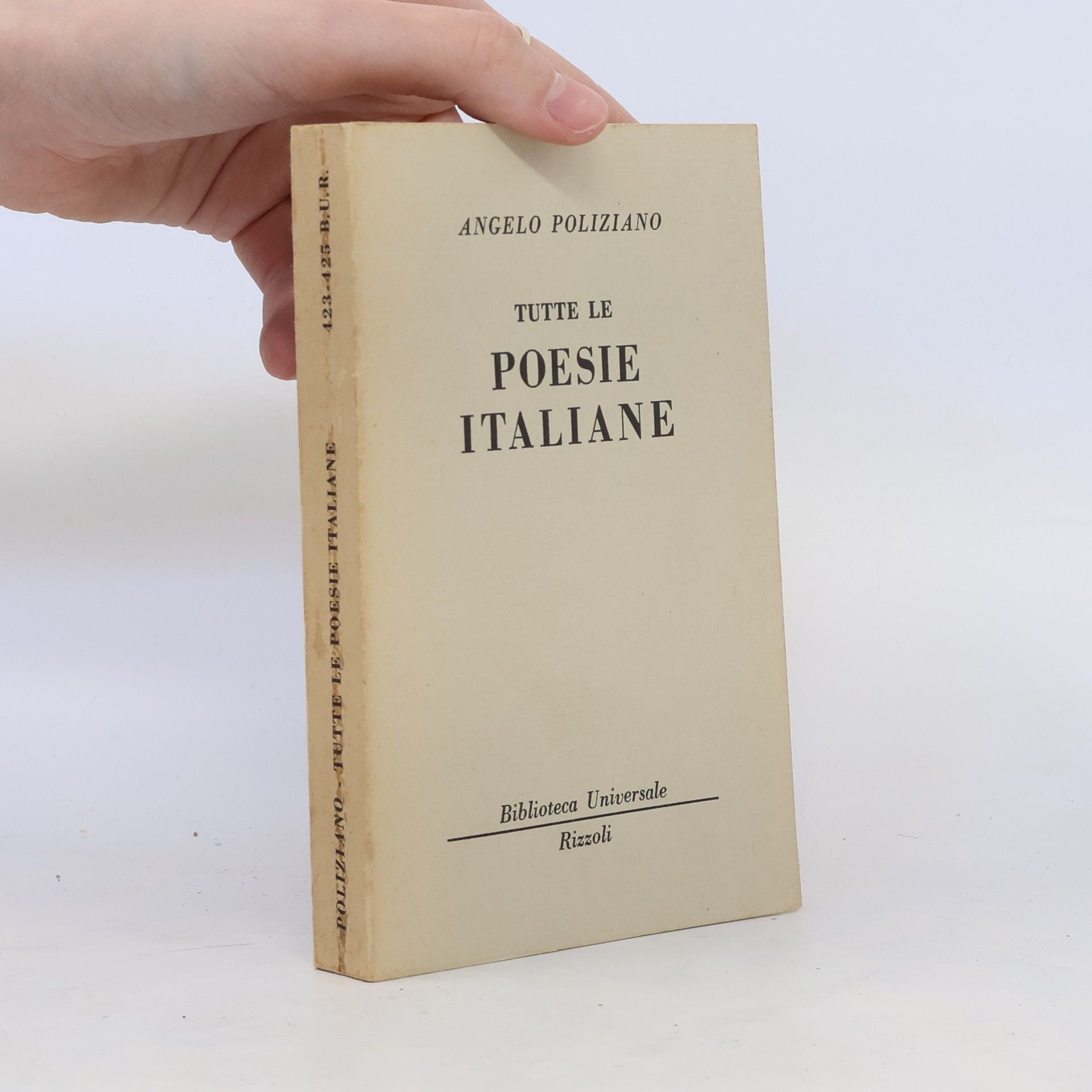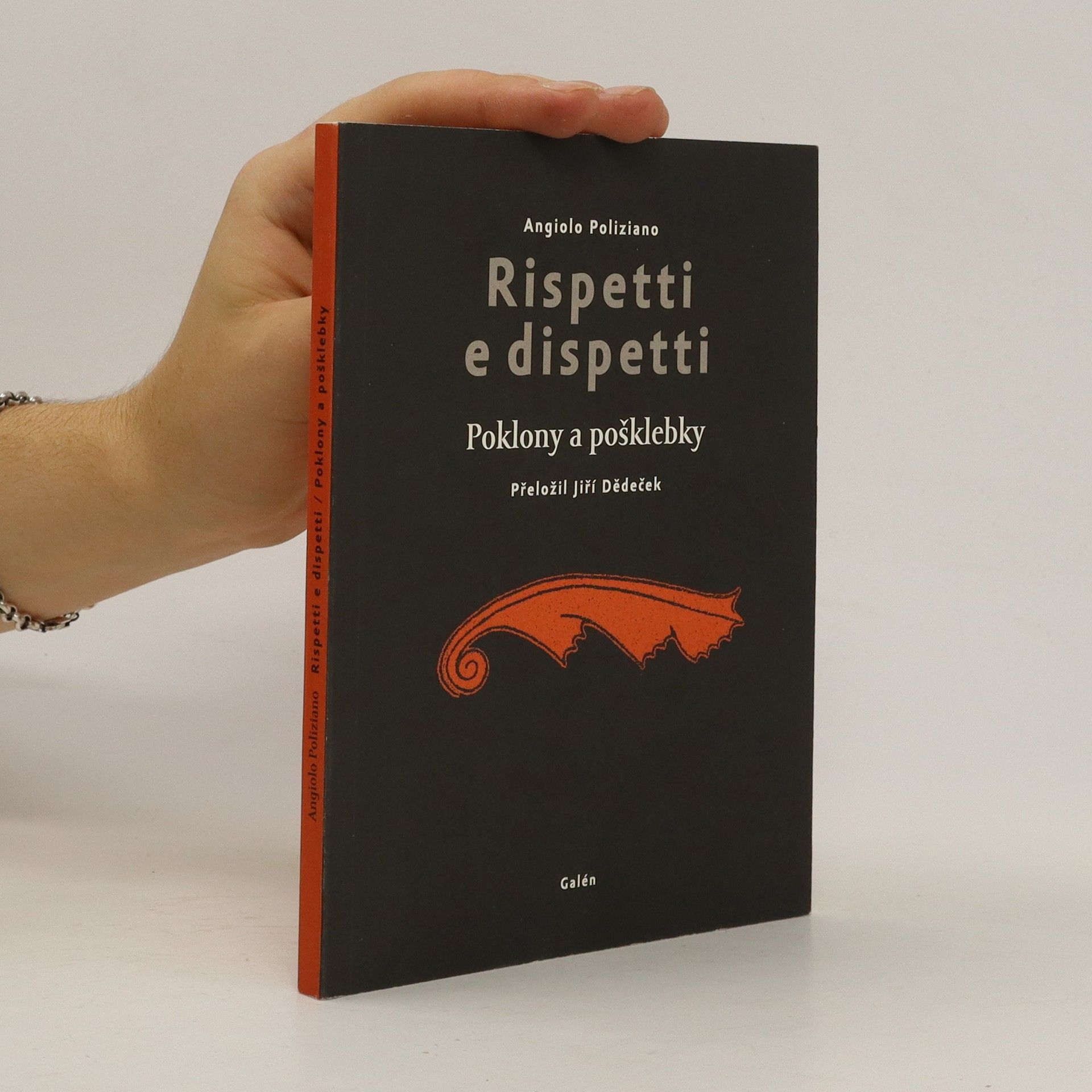Angelo Poliziano (1454-1494) war ein bedeutender italienischer Humanist und Dichter der Renaissance, bekannt für seine Beiträge zur humanistischen Literatur und seine klassische Studien. Als Lehrer in Florenz beeinflusste er viele Studenten, darunter Michelangelo. Sein bekanntestes Werk ist das Versepos "Le stanze per la giostra".
Angelo Poliziano Bücher






Miscellanies, Volume 1
- 672 Seiten
- 24 Lesestunden
In the Miscellanies, the great Italian Renaissance scholar-poet Angelo Poliziano penned two sets of mini-essays focused on lexical or textual problems. He solves these with his characteristic deep learning and brash criticism. The two volumes presented here are the first translation of both collection into any modern language.
Miscellanies, Volume 2
- 432 Seiten
- 16 Lesestunden
In the Miscellanies, the great Italian Renaissance scholar-poet Angelo Poliziano penned two sets of mini-essays focused on lexical or textual problems. He solves these with his characteristic deep learning and brash criticism. The two volumes presented here are the first translation of both collection into any modern language.
Rispetti e dispetti
- 63 Seiten
- 3 Lesestunden
Z rozsáhlého díla italského básníka, překladatele, filologa a vychovatele, humanisty Angiola Poliziana (vl. jm. Angelo Ambrogini, 1454-1494) vybral písničkář, básník a prozaik Jiří Dědeček soubor jeho mistrných básnických miniatur, která kongeniálně přeložil do češtiny. Polizianova pravidelně rýmovaná milostná poezie souzní nejen s Dědečkovým básnickým naturelem, ale překvapivě i s duchem naší doby, vzdálené Polizianově Florencii půl tisíciletí. Verše lásky, něhy, vzteku i posměchu patří k vrcholům současného českého básnického překladu.